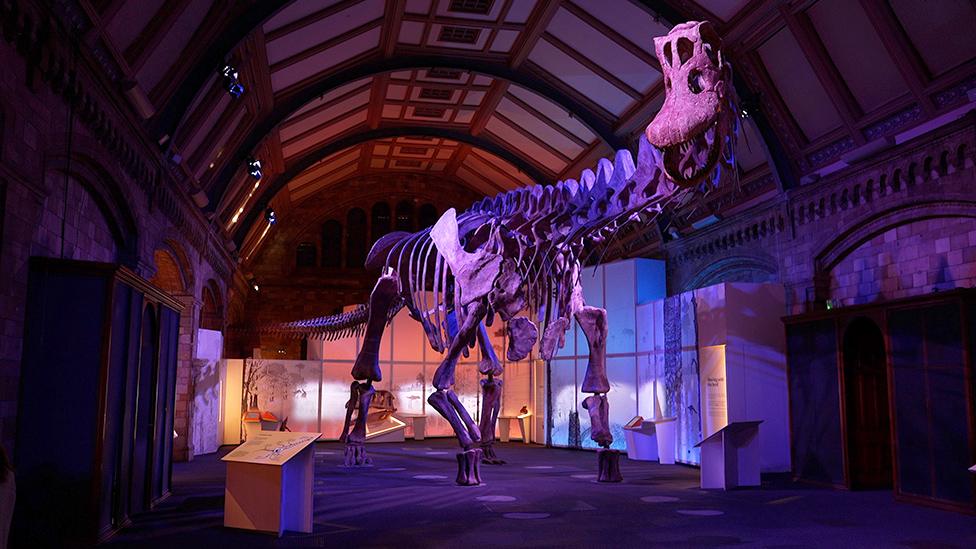Vectidromeus insularis: New plant-eating dinosaur species found on Isle of Wight
- Published
- comments
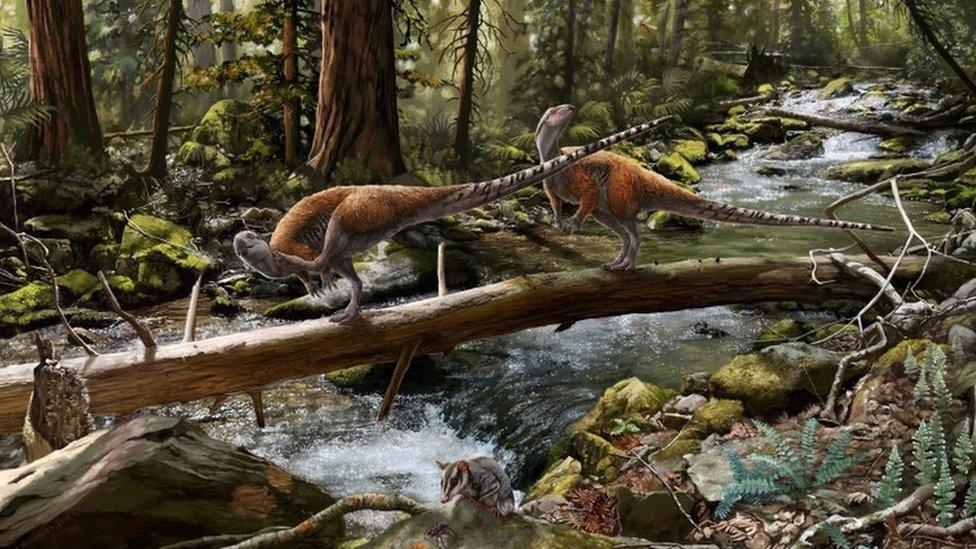
Artist's impression of how Vectidromeus insularis might have looked
The fossils of a new species of dinosaur have been discovered on the Isle of Wight, off the south coast of England.
The remains belong to a herbivorous - or plant-eating - dinosaur called Vectidromeus insularis, which lived more than 100 million years ago.
It's thought the two-legged dinosaur was around the size of a chicken and could move around speedily but the specimen found was young and fully grown they may have been much bigger.
Professor Dave Martill from the University of Portsmouth, said: "It is utterly bizarre that so many new dinosaurs are being discovered on the Isle of Wight.
"Vectidromeus is the seventh new species of dinosaur to be discovered in the last four years. This is all down to the amateur collectors."
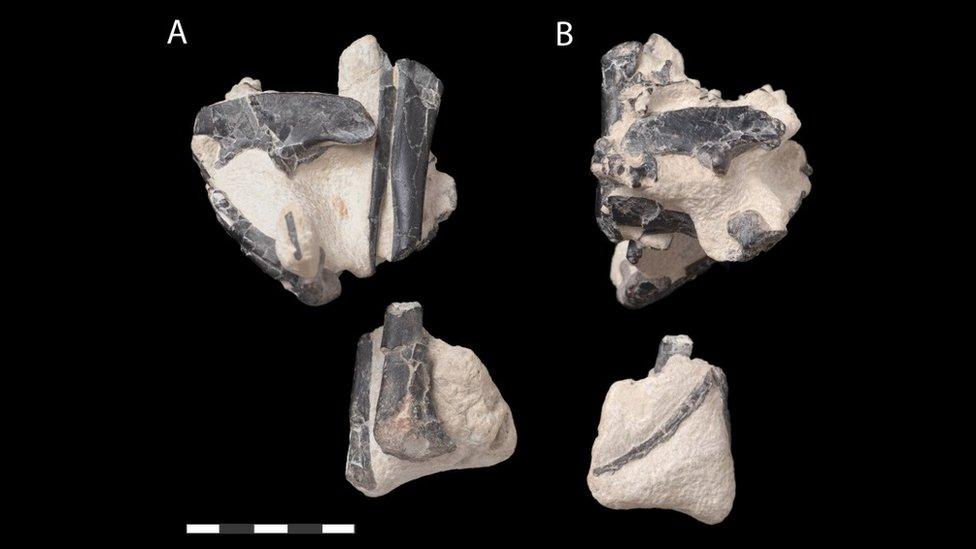
Fossils showing the femur bone from a Vectidromeus insularis
The discovery was made as part of research carried out jointly by the universities of Portsmouth and Bath.
Experts say the discovery suggests Europe had its own family of small plant-eating dinosaurs that differed from those found in Asia and North America.
The new species is the second member of the Hypsilophodont family to be found on the island.
The Isle of Wight is one of the UK's richest dinosaur fossil sites and is sometimes referred to as "Dinosaur Island".
Which dinosaur are you?
While finding out about these amazing animals have you been wondering what type of dinosaur you are most like?
Wonder no more... take our fun quiz instead.
If you cannot see the quiz on this page, click here.
- Published22 January 2023
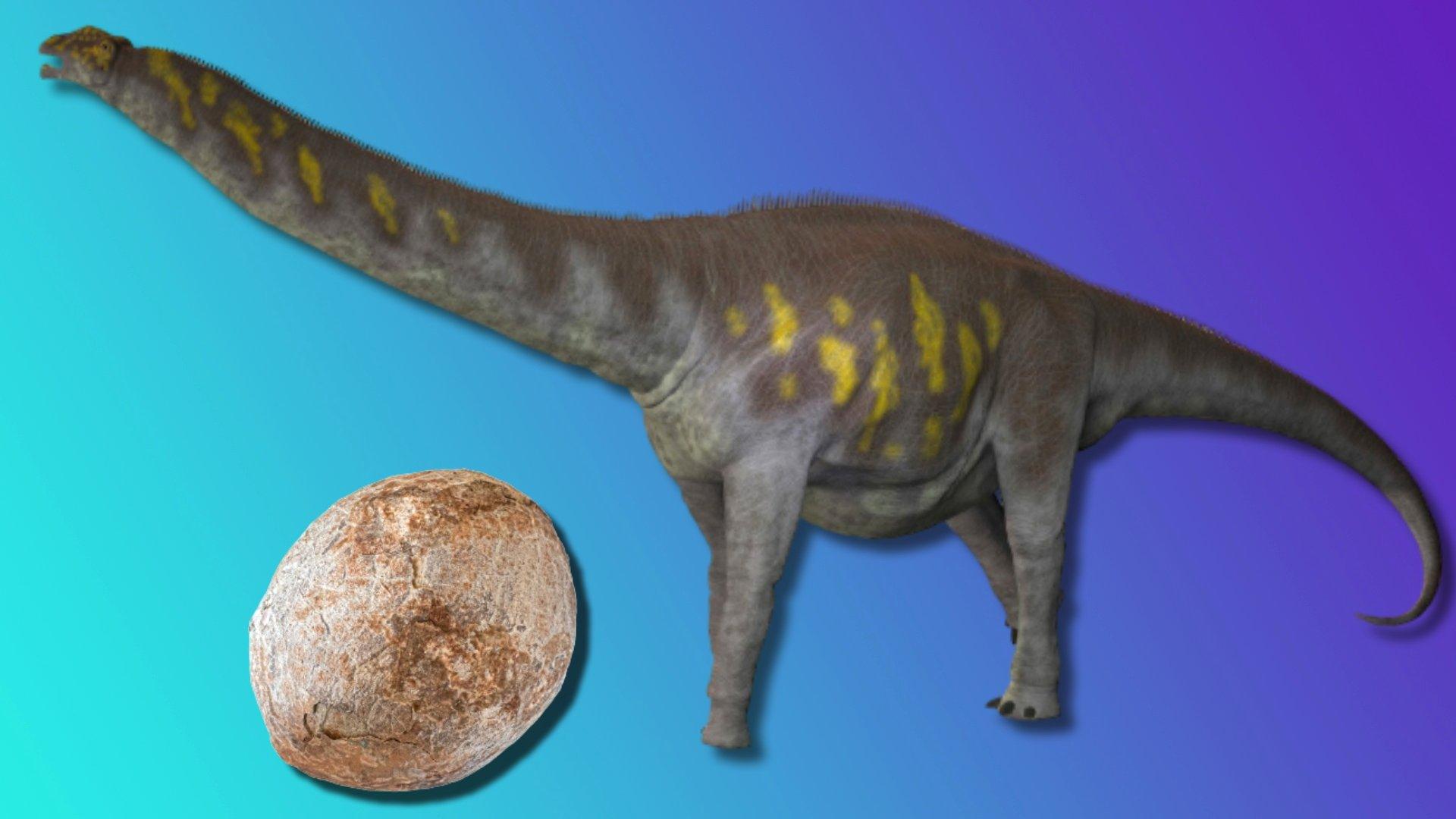
- Published16 June 2023
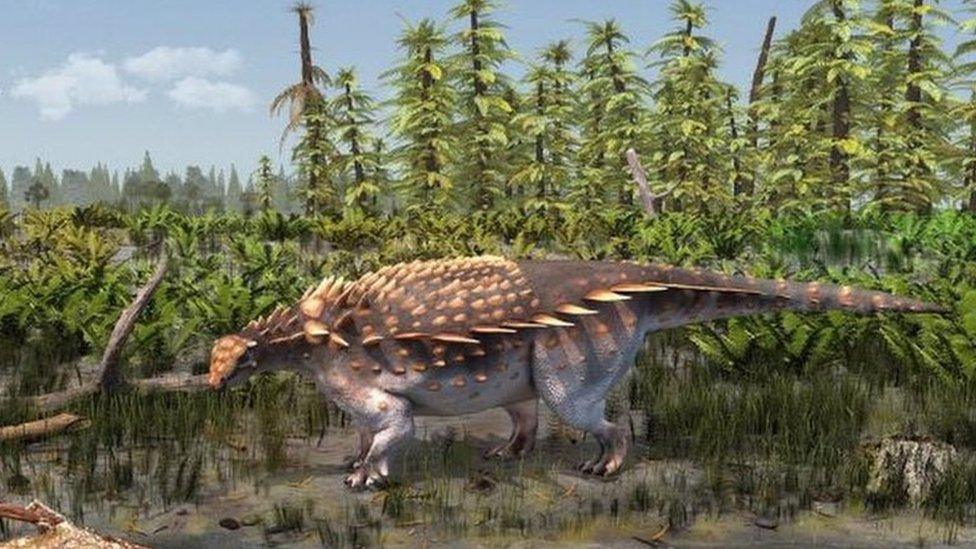
- Published31 March 2023
